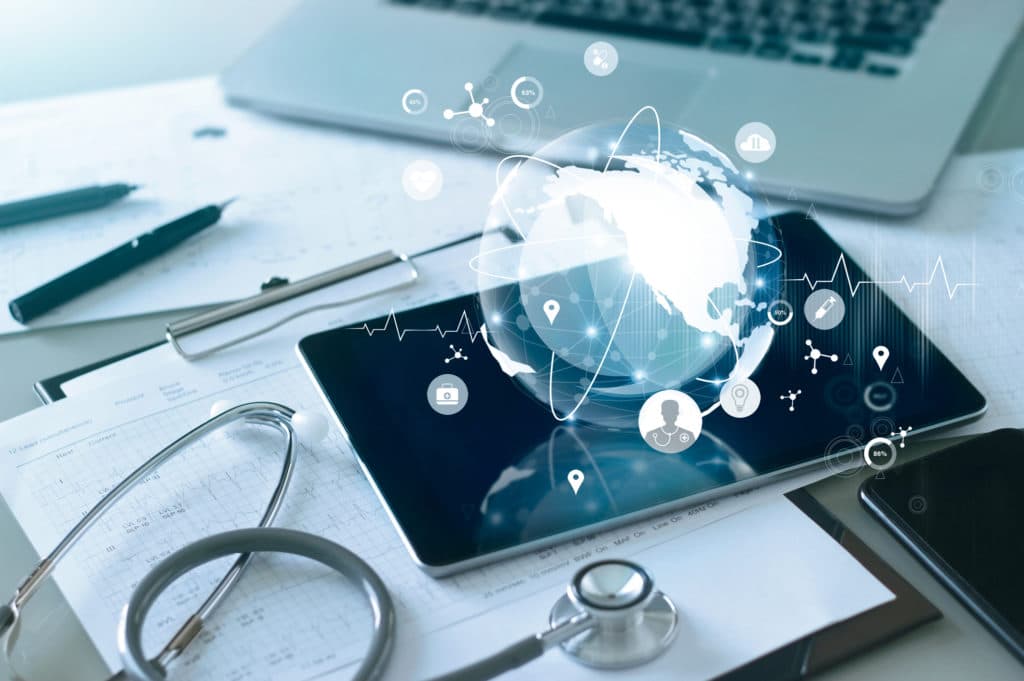Transformations in digital healthcare are taking place all over the industry and will continue to develop over the year. In the middle of a pandemic, providers everywhere have been forced to ask a valuable question. What technology and digital tools should they implement to help their practice run more effectively now, and once the pandemic is over? Little is known about what the future will hold, but providers should understand and adopt these transformations in digital healthcare now.
Top Transformations in Digital Healthcare
Telehealth
Without the use of telehealth, the healthcare landscape would be drastically different. The need to limit in-person interactions yet safely treat patients posed a need for some kind of remote care. Telehealth offered the perfect solution to providers at the start of the pandemic. Patients who were sick could be assessed and treated from their home during a virtual visit. Providers could assess the patient’s next steps and determine how to move forward. The use of this digital healthcare tool helped to curve the growth of the coronavirus. Once the pandemic is over, it will help to better treat patients with chronic conditions, contagious patients, and more.
Cloud-Based Software
Cloud-based software is a digital healthcare tool that has revolutionized how medical practices store data. In years past, medical data was kept on a private server, housed within the medical practice. Before that, it was kept in a paper filing system behind a lock and key. Healthcare data is more secure than ever with the use of cloud-based technology. Housed over secure internet access, authorized users can access data from their secure device from anywhere. Encrypted technology protects your data from cybersecurity risks and ensures your practice is safe from threats. Enabling the use of mobile technology and access to information, it helps providers work more effectively, from anywhere.
<Get a Demo of Cloud-Based Practice Management Software>
Artificial Intelligence
Artificial intelligence is one of the newest digital healthcare tools developed in recent years. Tools like Amazon Alexa and Google home are helping individuals everywhere on a daily basis and have now entered the medical field. Tools like AI nursing assistance are helping patients remember their medical schedules when to take their medications, request refills, and more. AI is helping providers collect more data than ever, enabling them to better understand their patients and grow their medical practice.
Blockchain
In situations where more than one provider needs access to a patient’s medical records, blockchain technology is making it simple. Blockchain technology is a digital healthcare tool that is designed to help patients allow permissions to certain providers. This might mean connecting their medical data to their hospital so that they can access it as well. This gives patients autonomy over their medical information, making it easier to access and share with who they trust.
Internet of Medical Things
The Internet of Medical Things (IoMT) is a recently developed digital healthcare tool that is still in progress. This concept would enable individuals and devices to access research, clinical data, studies, and other important information. In theory, this would improve how providers access information, making it easier for them to gain complete insight into a medical situation before making a clinical decision.
Transformations in digital healthcare will continue to happen now and in the future. To learn more about how your practice can adopt quality technology and digital healthcare tools, click here.




